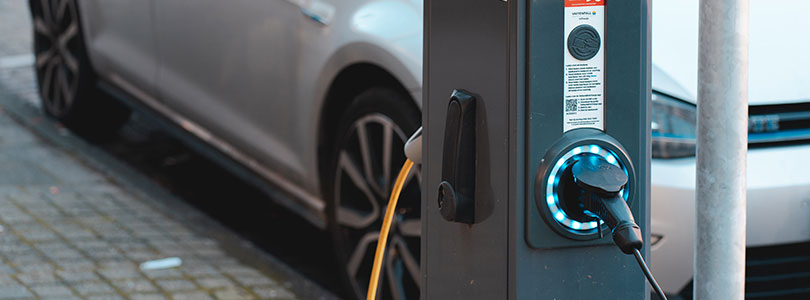Electric car sales are on the rise, with more of us than ever before deciding to go green when it comes to motoring. While this is fantastic news for the environment, we ask what impact this Electric Vehicle (EV) uptake will have on the UK’s power network.
What Are the Energy Infrastructure Improvements Required to Cope With Electric Car Charging?
Targeted investment is required to ensure that drivers on the road are able to access suitable charging points when away from their home charger, especially on the motorway networks across the UK. Crucially, a lot of electricity infrastructure sits alongside our motorways for practical reasons.
As recently reported in Autocar, Graeme Cooper, National Grid’s project director for transport decarbonisation has said, “The government has a policy to ensure high-power on-route charging and has put £950 million of funding in place to make sure that every motorway service area in England will have adequate future-proof capacity for everyone to have clean transport.”

Spreading the Demand
In terms of the National Grid meeting the demand at the peak times of the day, mainly when commuters head home after work between 6pm and 8pm, there are also challenges to overcome. The Government’s EV Taskforce has made recommendations that car chargers are ‘smart by design’ meaning the charger will pause at peak times, when prices are highest, and then reconvene charging during quieter periods, but will importantly still fully charge the vehicle. When people re-charge their EVs and how they do it will have an effect on stabilising demand on the grid.
What is the Outcome if We Don’t Adapt Quickly Enough?
The government recently brought forward the deadline to ban the sale of combustion engine vehicles to 2030 leading to questions about the UK’s readiness to keep up with demand. Drivers of electric vehicles will need to be able to charge their vehicles while commuting, as well as at home. If the UK doesn’t prepare sufficiently for a surge in demand, there could be widespread power losses.
A recent report by the EV Energy Taskforce made it clear that the demand on electricity supplies would require careful management from the industry and ministers, or as reported by iNews, the National Grid would be unable to cope. Aside from more drivers wanting to charge their vehicles, many homes and buildings in the UK now have more reliance on heat fuelled by electricity, again driving the demand for more energy from a system not yet setup to cope.
Without a properly managed smart charging system for the ever-increasing numbers of electric vehicles, generators could fail. A recent example of a multiple generator failure was back in August 2019, causing chaos for millions of commuters, businesses and homeowners.
How Will the EV Charging Network Evolve?
It is yet to be seen how EV charging networks will evolve as more of us turn to electric car models, but many owners are likely to opt to allow third parties to manage their vehicle charging, if they do not have access to a charge point at home for instance. This third party element adds to the risk of power cuts with charge point operators potentially changing the charging rates of too many EVs at once, leaving the electricity system unable to respond and electricity supplies ultimately lost.
Avoiding issues such as this is wholly reliant on proper grid management, smart charging and vehicle to grid technology at times when supply is low, or there is surplus supply available to sell back to the grid during peak times.
Shenton Group are in the process of reviewing our fleet of vehicles and moving across to electric. There are plans to put charging points at our offices to allow for charging out of peak times also providing electricity at a much cheaper rate. This is just one of the many ways we are moving towards a more sustainable future. After all, our tag line is “Power with Responsibility”.

Can Your Business Cope With Power Cuts?
At Shenton Group, we support businesses and organisations to ensure that they have a constant power supply, even in the event of a power outage. Whether you need a generator onsite, a UPS system or a call out service that provides power quickly, we are here to help. By having a plan in place to protect your business’s vital electricity supply, you can continue to operate as normal should the mains power fail.
With more strain expected to be placed on the National Grid to support the constantly changing EV charging infrastructure, and the change to a greener energy supply, don’t risk being left in the dark. Speak to Shenton Group about the measures we can put in place to secure your power, and discuss today the options available to ensure tomorrow is a greener and brighter future.
What are you waiting for? Get in touch and speak to the UK’s leading technical experts!

